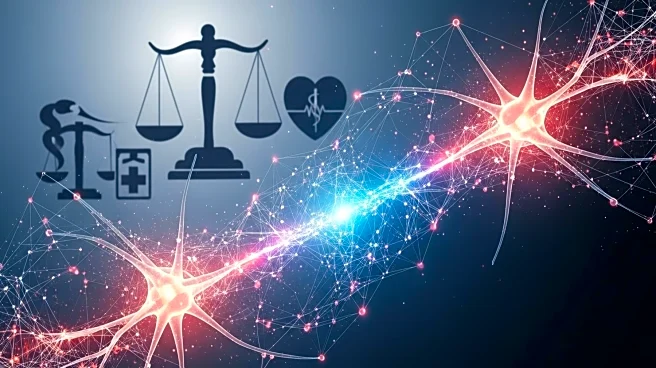What's Happening?
AI-generated hallucinations, where AI models produce false or misleading information, are increasingly affecting high-stakes sectors such as law and healthcare. These hallucinations have led to fabricated citations in legal filings, causing judges to void rulings or sanction attorneys. In healthcare, AI models have made erroneous medical reports, raising concerns about their reliability in critical applications. Efforts to mitigate these issues include implementing checks and training models with domain-specific data to reduce hallucination rates.
Why It's Important?
The impact of AI hallucinations in sectors like law and healthcare is significant due to the potential for serious consequences. In legal settings, incorrect AI-generated information can undermine the integrity of judicial processes, while in healthcare, it can lead to misdiagnoses or inappropriate treatments. As AI becomes more integrated into these fields, ensuring accuracy and reliability is crucial to prevent harm and maintain trust in AI technologies. Companies are investing in solutions to minimize these risks, highlighting the importance of addressing AI's limitations.
What's Next?
Tech companies are actively working on solutions to reduce AI hallucinations. AWS is developing Automated Reasoning checks to improve accuracy, while other firms are exploring retrieval-augmented generation and multi-agent frameworks to refine AI responses. These efforts aim to lower hallucination rates and enhance the reliability of AI in critical sectors. Continued research and development are expected to focus on improving AI's ability to provide accurate information, with potential advancements in prompt engineering and real-time fact retrieval.
Beyond the Headlines
AI hallucinations also pose ethical and cultural challenges, as they can reinforce biases or stereotypes if not properly managed. The development of AI models that prioritize accuracy and fairness is essential to prevent unintended consequences. Additionally, the phenomenon of 'AI psychosis,' where individuals develop irrational beliefs about AI's capabilities, underscores the need for public awareness and education about AI's limitations. Addressing these broader implications is vital for the responsible integration of AI into society.









